/ Full archive
📣📣 Calling all Early Career Researchers (ECRs) at the postdoctoral level! 📣📣
Help us understand the precarious nature of fixed-term contracts.
The Action Research on Research Culture (ARRC) project at the University of Cambridge is conducting an online Discrete Choice Experiment to examine how postdocs and ECRs make career choices. The results from this survey will inform policy recommendations aimed at improving research careers.
With only 10-15 minutes of your time, you can contribute to the conversation about contract precarity in the academic sector and help the understanding of the situation among funders and universities. As a token of our appreciation, we will donate £2 to a charity of your choice for completion of our survey!
You can find the survey here:
https://redcap.link/ECR_job_pref
For further information about our project, please visit our website or email us at arrcproject@admin.cam.ac.uk.
BA ECRN: Impact and Engagement Workshop

5th June 2025, Impact & Engagement Workshop in Bath, including AHRC & British Academy
Doubletree by Hilton Hotel, Bath, 1000-1600 (optional to 1700)
The impact and public engagement agenda in the UK and internationally are rapidly changing the nature of academic work across disciplines and affecting the shape of academic careers and post-doctoral research opportunities more widely.
It is important to understand how the opportunities and requirements produced by this shift can help Early Career Researchers strengthen their research portfolios, networks, and ultimately help secure an interesting and meaningful research career.
Join us for a day of workshopping, discussions and networking where we’ll benefit from the insights of experts and peers on impact and public engagement in humanities and social sciences research.
We will be guided towards fruitful ways of (re)imagining our research, extending its reach, building academic and non-academic collaborations, and strengthening our standing in the national and international research space.
Book your place here: https://www.tickettailor.com/events/earlycareerresearchernetwork/1676717
Tentative agenda:
| 09:15-10:00 | Registration and Networking |
|
10:00 – 10:05
10:05 – 10:15
|
Welcome – Bath Spa University
Aims for today & framework |
| 10:15 – 10.45
|
Temperature check
Interactive check-in – how is everyone feeling about their professional identity, current and future career? – what are the issues of concern? – what is going well? |
|
10.45 – 12.00
|
Building professional integrity through impact and engagement in a dynamic research environment and shifting culture (tentative title) – Tracey Stead, Leadership Development Consultant, Facilitator & Coach |
| 12.00 – 13:00 | Lunch |
| 13:00 – 14:30 | Public Engagement: an overview of the PE landscape with a presentation of case studies demonstrating the value and impact of PE (tentative title) – Mike Collins, Head of Public Engagement, Arts and Humanities Research Council |
| 14:30 – 14:35
|
Comfort Break |
| 14:35 – 15:30
|
Public engagement and impact: what does it mean for your career going forward?– a set of facilitated interactive sessions tbc |
| 15:30 – 16:00 | Temperature re-check and moving forward
Check back to points raised at the start of day Plan: where to go from here? |
| 16:00 – 17:00 | Afternoon Tea and Networking (optional) |
CWLTH Research Seminar
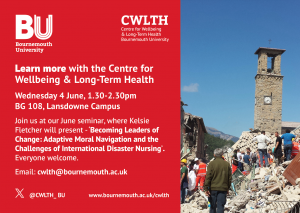
The next Centre for Wellbeing and Long-Term Health (CWLTH) Research Seminar will be at 13:30-14:30 on Wednesday 4th June in BG-108. Kelsie Fletcher (Lecturer in Nursing at the University of the Sunshine Coast and PhD student at BU) will be speaking about her doctoral research on ‘Becoming leaders of change: adaptive moral navigation and the challenges of international disaster management‘. Kelsie will be submitting her doctoral thesis later this year. Everyone is welcome to join us to learn more about Kelsie’s research.
For more information about the CWLTH please contact cwlth@bournemouth.ac.uk.
Nanocoatings to Bionanocomposites: Sustainable Solutions
 Coating Innovation for Tough Environments
Coating Innovation for Tough Environments
At Bournemouth University, Professor Zulfiqar Khan and his team at the NanoCorr, Energy & Modelling (NCEM) research group have long been developing innovative nanocoating technologies. These ultra-thin coatings are designed to protect materials from damage caused by high temperatures, pressure, corrosion, and wear.
Their work is especially relevant to industries like energy, transport, and manufacturing—where equipment is pushed to the limit every day. By improving the durability and energy efficiency of such systems, these coatings can reduce costs and environmental impact.
A recent publication by the team, featured on PubMed Central (https://pmc.ncbi.nlm.nih.gov/articles/PMC9788522/), explores how carefully designed nanocomposite coatings can provide long-term protection while remaining environmentally responsible. The research highlights the team’s expertise in tribology (the science of wear and friction), materials science, and surface engineering.
A New Frontier: Fighting Superbugs with Nanoscience
This strong foundation in coatings and materials research has supported Professor Zulfiqar Khan and his team in addressing one of the biggest global health challenges of our time: antibiotic resistance.
In a separate study published on PubMed (https://pubmed.ncbi.nlm.nih.gov/34771863/), the team introduced a novel copper oxide (CuO) bionanocomposite that shows powerful antibacterial properties. What makes this research stand out is its simple, green production method—using CuO nanoparticles derived from bitter melon (Momordica charantia), combined with natural egg yolk phospholipids and glycerol.
This eco-friendly approach avoids the need for toxic chemicals or expensive metals like silver. The result is a stable, affordable, and highly effective material that can kill drug-resistant bacteria, including E. coli and S. aureus, at very low doses (minimum inhibitory concentration of just 62.5 µg/mL).
Recognised on a Global Stage
The fact that this work is published on PubMed—a leading platform hosted by the US National Library of Medicine—shows the international relevance and scientific quality of the research. Only peer-reviewed studies of high standard are included on PubMed, meaning this work by Professor Zulfiqar Khan and his team has been recognised as a significant contribution to global health.
Their findings come at a time when antimicrobial resistance is a growing threat. According to the World Health Organization (WHO), it’s one of the top 10 public health risks facing humanity.
What’s Next?
This research opens the door to real-world applications—such as antimicrobial coatings for medical devices, tools for agriculture, or water purification systems. However, further work is needed to identify some of the unknown compounds in the material and to confirm long-term safety in living systems.
From Machines to Medicine
Whether protecting a turbine from corrosion or tackling bacteria that no longer respond to antibiotics, the work of Professor Zulfiqar Khan and his team combines advanced engineering with environmental and public health awareness. Their approach shows how expertise in nanocoatings and materials science can be applied to solve very different—but equally important—global challenges.
Take part in the 2025 ESRC Festival of Social Science – Deadline for applications: Thursday 15 May 2025
Up to £1,000 per event available to engage the public with your research in a national prestigious festival

The 23rd annual ESRC Festival of Social Science (FoSS) takes place Saturday 18 October – Saturday 8 November 2025, with the theme of ‘Our Working Lives’.
About the Festival of Social Science
The festival is an annual UK-wide celebration of research and knowledge about people and society, organised and funded by the Economic and Social Research Council (ESRC). It provides a platform for researchers from UK universities to engage the public in a wide range of topics, from health and wellbeing to crime, equality, education, and identity, through engaging events such as exhibitions, lectures, panel debates, performances, and workshops.
The festival is free to attend, with most events open to everyone, though some may target specific groups. It offers researchers a unique opportunity to take their work beyond the university, connect with diverse audiences, and present their research in creative and accessible ways. Funding of up to £1,000 per event is available.
What are the festival aims?
- Encourage, support & create opportunities for social science researchers to engage with the public and young people
- Promote & increase awareness of the social sciences and ESRC-funded research, & the contribution social science makes to the UK
- Enable the public to engage with social science research
- Engage with teachers and young people and raise their awareness of the social sciences
Training to run a great event
The national FoSS team is coordinating public engagement training with Engagement Trainer and Consultant Jamie Gallagher in June (repeated in September). Attendance at these sessions is mandatory for all event leads to attend and further details will be shared upon successful application.
To help you develop your application, you can sign up to attend the Introduction to Festival of Social Science 2025 webinar on Thursday 8 May, 12pm via Teams.
Applications will be assessed on these 5 key areas
Motivation for taking part – Show you have thought carefully about why you are applying e.g. to pilot an idea, reach a new audience, or develop public engagement skills, and what you hope to gain.
Target audience identified – Events must be aimed at a non-academic audience. Clearly define who your audience is (e.g. a specific public group, community, or professional sector). If you are proposing an event for professionals, businesses, policymakers, or third sector organisations, please note that ESRC rules only permit up to 20% of our events to be targeted at these groups. As we often receive many proposals in this category, selecting one of these audiences may reduce your chances of taking part.
Audience motivation – Show why your chosen audience would be interested in your activity, and how and when they might engage.
Content & format – Demonstrate initial ideas for what the activity will involve, why the format suits the goal (e.g. in-person, online), and considerations for timing and location.
Appropriate costing – Budget should be realistic, clear, and fit the scale and type of activity.
How to apply
We are particularly keen to receive applications from PGRs and early to mid-career researchers and encourage groups/teams to apply. If you have a supervisor, they will need to endorse your application by emailing publicengagement@bournemouth.ac.uk.
If you are considering applying, we strongly encourage you to get in touch with us directly as early as possible.
Apply to take part by completing the online application form.
Deadline for applications: 11:59pm, Thursday 15 May 2025
You can view the slides from the Information Session here. If you weren’t able to attend, or if you would like to revisit what was covered, you can also watch the session here.
Please read before applying
Before submitting your application, please make sure you meet both the ESRC eligibility criteria and our key requirements. This is essential for your proposal to be considered. Applications that reference academic or undergraduate audiences, or propose campus-based venues, will not be eligible. This opportunity is focused on public engagement beyond academic settings.
Festival Event Leader Pack this practical guide supports researchers in planning and delivering events for the festival. It covers the festival’s aims, event criteria, useful planning tips, audience engagement, and evaluation. It also details the funding, training, and promotional support available from the ESRC, making it a key resource for aligning events with the festival’s goals.
Contact us
Please contact the Public Engagement Team to discuss your application publicengagement@bournemouth.ac.uk
AI learning to read emotions from motion….
 This is Dr Roya Haratian participating in data collection to help develop AI which can read emotions from motion!
This is Dr Roya Haratian participating in data collection to help develop AI which can read emotions from motion!
This is our Higher Education Innovation Fund (HEIF) project HORSENSE VR. We are developing a game which enables participants to play with horses in a virtual environment to develop calmness and reduce anxiety.
We are working with external partners – our team is Dr Roya Haratian, Prof Fred Charles, Prof Ann Hemingway, Dr Xun He, Harriet Laurie MBE (The HorseCourse) Liucheng Guo (Tg0), Paul Brown.
Building Research Capacity: The key role of PhD students
Postgraduate students, especially PhD students dramatically expand a university’s research capacity. They contribute significantly to data collection, analysis, the day-to-day management of research projects, and publications that might otherwise be impossible to sustain. Postgraduate students are central to progressive research-active communities. PhD student also frequently serve as mentors to undergraduate researchers or Masters’ students, creating a cascade of learning that benefits all participants.
Beyond individual projects, postgraduate students help build research infrastructure through their contributions to lab management, protocol development, the exchange of innovative ideas, and so on. These contributions create lasting benefits to staff as well as higher education institutions. Academic communities with PhD students often promote collaboration, provide emotional and intellectual support, and create spaces where ideas can be tested and analyses refined before wider dissemination.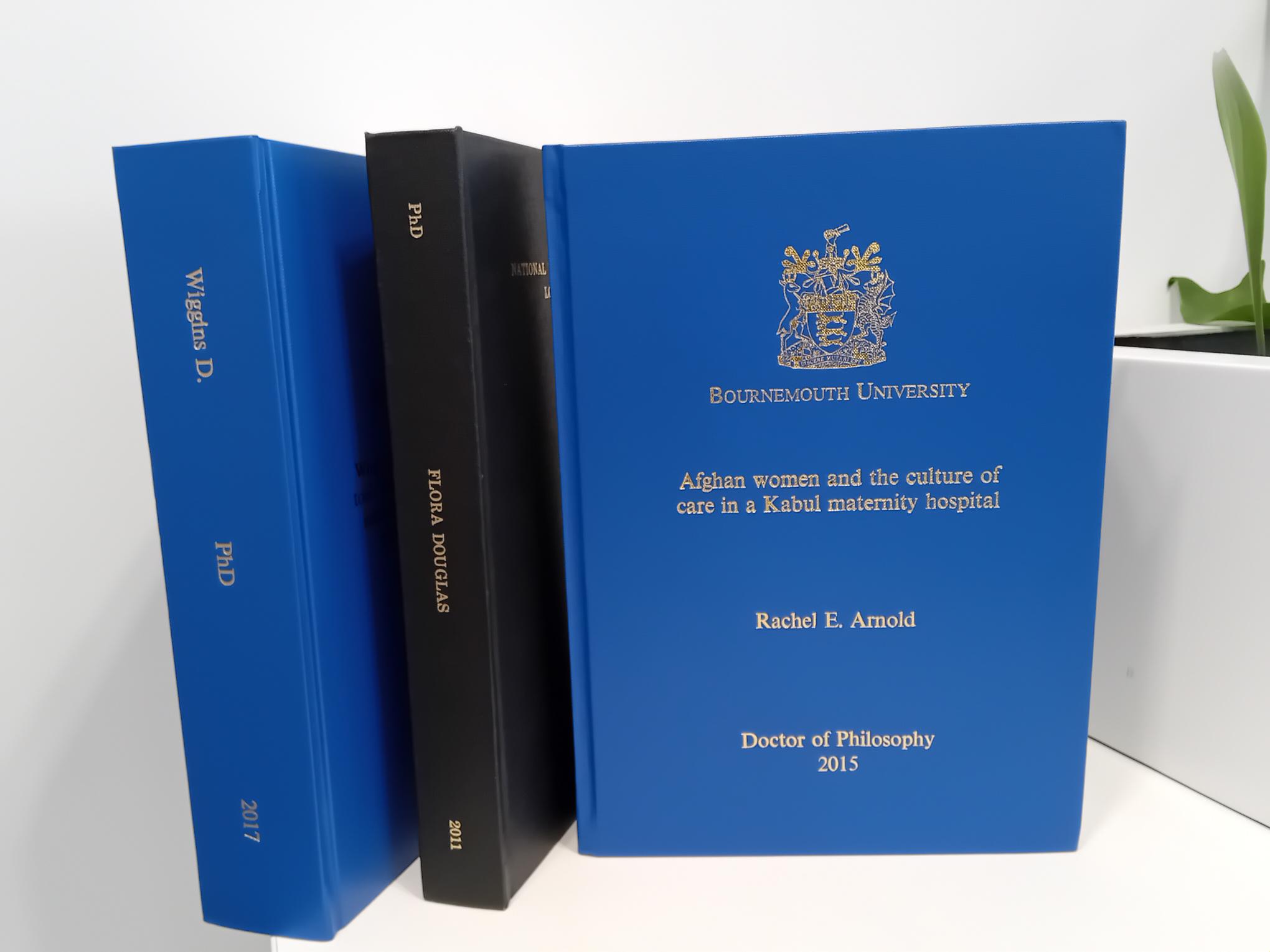
This expanded capacity allows universities to pursue more ambitious research agendas and respond to complex challenges requiring multidisciplinary approaches. The postgraduate journey requires carefully planned mentorship, giving students increasing autonomy, and ownership of their scholarly contribution. This apprenticeship model has proven remarkably effective in preparing the next generation of academics for centuries.
This blog was created as part of the Professional Discourse in the Age of AI: an interactive writing workshop facilitated by Prof. Debbie Holley and Prof. Carol Clark in the Faculty of Health & Social Sciences at Bournemouth University. Since last week’s workshop was on the topic, we have used the help of AI in the writing of this BU Research Blog!
Dr. Kathryn Collins, Prof. Vanora Hundley & Prof. Edwin van Teijlingen
Action for Children to present at Community Voices Webinar Wednesday May 14th 12-1pm
The May Community Voices Webinar will welcome Lynn and Maddy from Dorset Action for Children – to shine a light on the services they provide and specifically Dorset Nightstop – providing young homeless people aged 16-25 with shelter through a network of vetted volunteer host families.
https://service.actionforchildren.org.uk/dorset-services/dorset-nightstop/
Action for Children is a UK-based children’s charity that provides practical and emotional care and support to vulnerable children and young people.
The charity has a wide range of services for parents and families, including parenting support, childcare, fostering, residential care and policy and research.
They also ensure children’s voices are heard and campaign for improvements in their lives.
In Dorset, Action for Children runs two services. A Parenting Support Service providing individual/group programmes and webinars for parents/caregivers struggling with their children’s challenging behaviour.
Also Dorset Nightstop that provides young homeless people aged 16-25 with shelter through a network of vetted volunteer host families.
Lynn and Maddy will be talking more about the work of Action for Children with particular reference to Dorset Nightstop.
Community voices is a collaboration between BU PIER partnership and Centre for Seldom Heard Voices to provide a platform and a voice to local community activists.
Please do join us for this webinar….
Bournemouth University eHealth paper cited 40 times!
Yesterday, ResearchGate alerted us that the paper ‘Midwives’ views towards women using mHealth and eHealth to self-monitor their pregnancy: A systematic review of the literature’ [1] had reached 40 citations! This paper has four Bournemouth University (BU) authors and one author, Prof. Gary Smith, who was FHSS Visiting Professor at the time of publication. This literature review, published in 2020, sought midwives’ perspectives on women self-monitoring their pregnancy using eHealth and mHealth.
 The paper fund that midwives generally held ambivalent views towards the use of eHealth and mHealth technologies in antenatal care. They acknowledged the potential benefits of such technologies, such as their ability to modernise antenatal care and to help women make more informed decisions about their pregnancy. However, midwives were quick to point out the risks and limitations of these, such as the accuracy of conveyed information, and negative impacts on the patient-professional relationship.
The paper fund that midwives generally held ambivalent views towards the use of eHealth and mHealth technologies in antenatal care. They acknowledged the potential benefits of such technologies, such as their ability to modernise antenatal care and to help women make more informed decisions about their pregnancy. However, midwives were quick to point out the risks and limitations of these, such as the accuracy of conveyed information, and negative impacts on the patient-professional relationship.
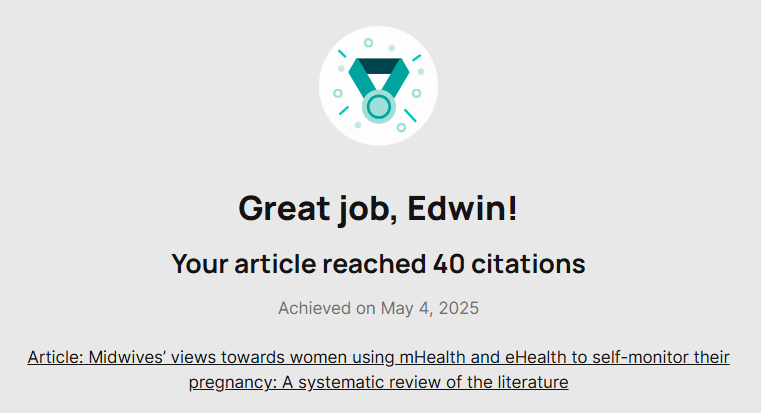 This paper will contribute to our recently awarded NIHR funding to tackle inequalities in UK maternal healthcare as part of the NIHR Challenge Call: Maternity Disparities Consortium. Profs Vanora Hundley and Edwin van Teijlingen from the Centre for Midwifery and Women’s Health, and Prof. Huseyin Dogan and Dr. Deniz Cetinkaya from the Department of Computing and Informatics collaborate in MIHERC (Maternal & Infant Health Equity Research Centre). MIHERC is led by Prof. Hora Soltani at Sheffield Hallam University, and it is a partnership with Bournemouth University, the City of Doncaster Council and South Yorkshire Digital Health Hub as well as several charities and voluntary organisations. Prof. Dogan has recently been appointed the co-lead for the “Digital, data, monitoring, evaluation and implementation science” work stream of the NIHR Maternity Disparities consortium.
This paper will contribute to our recently awarded NIHR funding to tackle inequalities in UK maternal healthcare as part of the NIHR Challenge Call: Maternity Disparities Consortium. Profs Vanora Hundley and Edwin van Teijlingen from the Centre for Midwifery and Women’s Health, and Prof. Huseyin Dogan and Dr. Deniz Cetinkaya from the Department of Computing and Informatics collaborate in MIHERC (Maternal & Infant Health Equity Research Centre). MIHERC is led by Prof. Hora Soltani at Sheffield Hallam University, and it is a partnership with Bournemouth University, the City of Doncaster Council and South Yorkshire Digital Health Hub as well as several charities and voluntary organisations. Prof. Dogan has recently been appointed the co-lead for the “Digital, data, monitoring, evaluation and implementation science” work stream of the NIHR Maternity Disparities consortium.

Reference:
- Vickery, M., van Teijlingen, E., Hundley, V., Smith, G. B., Way, S., Westwood, G. (2020). Midwives’ views towards women using mHealth and eHealth to self-monitor their pregnancy: A systematic review of the literature. European Journal of Midwifery, 4(Sept.), 1-11. https://doi.org/10.18332/ejm/126625
Nepal Family Cohort Study meeting in Bournemouth
 Prof. Om Kurmi who leads the Nepal Family Cohort Study (NeFCoS) joined the Bournemouth University (BU) team today for a research planning meeting in Bournemouth today. Dr. Om Kurmi, Associate Professor Research in the Centre for Healthcare and Communities at Coventry University. The BU team comprises Dr. Pramod Regmi (Principal Academic-International Health), Prof. Carol Clark (Professor in Physiotherapy), Prof. Edwin van Teijlingen (Professor of Reproductive Health), Dr. Rebecca Neal (Principal Lecturer in Exercise Physiology) and Dr. Vanora Hundley (Professor of Midwifery).
Prof. Om Kurmi who leads the Nepal Family Cohort Study (NeFCoS) joined the Bournemouth University (BU) team today for a research planning meeting in Bournemouth today. Dr. Om Kurmi, Associate Professor Research in the Centre for Healthcare and Communities at Coventry University. The BU team comprises Dr. Pramod Regmi (Principal Academic-International Health), Prof. Carol Clark (Professor in Physiotherapy), Prof. Edwin van Teijlingen (Professor of Reproductive Health), Dr. Rebecca Neal (Principal Lecturer in Exercise Physiology) and Dr. Vanora Hundley (Professor of Midwifery). 
The Nepal Family Cohort Study (NeFCoS) is a multidisciplinary cohort study into the prevalence, incidence, and determinants of various diseases from childhood to adulthood in children and their parents [1]. NeFCoS has just started to collect date for the first round of follow-up.
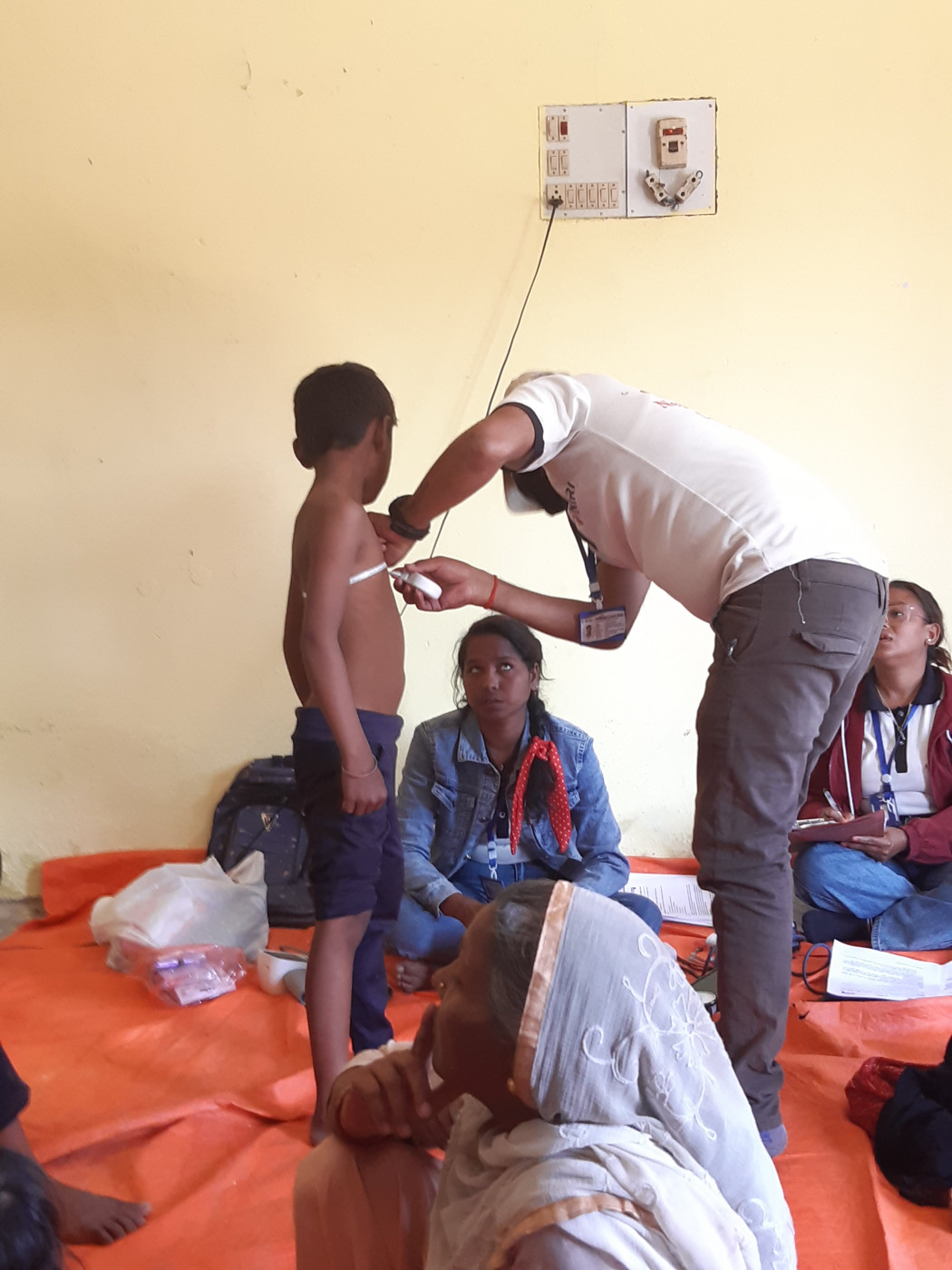 Today’s meeting was organised by Dr. Neal and supported by BU’s QR funds.
Today’s meeting was organised by Dr. Neal and supported by BU’s QR funds.
- Kurmi, O.P., Chaudhary, N., Delanerolle, G., Bolton, C.E., Pant, P.R., Regmi, P., Gautam, S., Satia, I., Simkhada, P., Kyrou, I., Sigdel, T.K., Hundley, V., Dali, P.R., Lokke, A., Hubert Lam, K.B., Bennett, D., Custovic, A., van Teijlingen, E., Gill, P. Randeva, H., O’Byrne, P.M., and Nepal Family Cohort Collaborators Group, Nepal Family Cohort Study: A Study Protocol, BMJ Open 14:e088896. doi:10.1136/ bmjopen-2024-088896
Trans+ Research Conference on Lansdowne Campus!
Join our Trans+ Research Conference, an exciting day dedicated to advancing research and understanding of trans+ experiences.
📅 15 May 2025 | 📍 Bournemouth University, Lansdowne Campus and Online
🔗Register online here https://www.ticketsource.co.uk/beyond-reflections/trans-research-conference/2025-05-15/09:00/t-vvammmg
GSW Food Security Academic Summit
The Great South West launched its Food Security Position paper in Westminster late last year highlighting the significant contribution this region makes to the UK’s food supply. The launch event drew together policy makers from both the Commons and the Lords, leading industry and academia. The event highlighted the key food security challenges and the critical role that the South West region holds in securing our national food supply. Bournemouth University was represented by Professor Jeff Bray.
Universities across the Great South West region are researching different aspects of Food Security. To develop greater awareness of the region’s research interests and capabilities, an academic Food Security Summit is being convened in June. This event will bring the region’s universities together, showcase respective expertise and enable academic network building thereby stimulating greater collaboration. Themes to be discussed include agri-tech developments, localised supply chains, consumer decision making & economic approaches. A regional academic network will be developed and annual meetings established, reflecting the trajectory and importance of the topic.
This timely and much-needed initiative is led by Jeff Bray from BU and supported by colleagues from all Faculties. If you have a research interest in Food Security and would like to be included in these discussions, then please e-mail Jeff with a brief outline of your research focus by 15th May.
RKEDF May digest

Book now for RKEDF training in May 2025
Click on the titles to find further details and book your place
Introduction to RED – The Research & Enterprise Database
Wednesday 7th May 13:00-13:45 – online
This session is aimed at all academics to provide an overview of the Research & Enterprise Database. Including how to access the system, the information available to view, budget management via RED, and how to use RED to identify your supporting pre and post award officers.
ECR Ethics – Clinical research governance
Monday 19th May 11:00-12:00 – online
The processes surrounding implementing clinical research in the NHS can often be quite daunting, however there is plenty of guidance and advice on offer to help guide you in this should you require. This session will develop your understanding of the governance requirements when carrying out clinical research and help you explore the first steps in seeking approval.
ECR Ethics: Values, standards and BU process – Q&A
Monday 19th May 12:00-13:00 – online
Ethical implications arising from your research design, methodology, conduct, dissemination, archiving, future use and sharing of data produced should all be considered at the before and throughout your research. Careful reflection and planning in relation to research ethics should not only benefit participants but enhance the quality of your research. This Q&A allows you to discuss your ethical considerations with research ethics panel members to further your insights into this important area of being a researcher.
Developing Policy Engagement for Impact
Friday 30th May – 09:30-13:00 – in person
Are you preparing an impact case study for REF 2029? Do you need expert advice on navigating the policy landscape to ensure your research reaches decision makers? If so, this workshop is perfect for you. Carys Davis, a public affairs and policy consultant from The Other Place Public Affairs Ltd., will lead this workshop. RDS’s Impact Team will be present to offer support and guidance. This workshop is primarily aimed at researchers working on impact case studies for REF 2029, who will be given priority for registration. If you’re unsure whether this is suitable for you, please consult your UOA impact champion
Horizon Europe 2025
The European Commission has announced Horizon Europe 2025 Information Days to help applicants prepare proposals for Horizon Europe 2025 calls. Most events are scheduled to take place in May 2025. Please see further details on the BU Research Blog: BU Research Blog | Horizon Europe info days 2025 | Bournemouth University (the blog post has been recently updated)
Epigeum Research Skills Toolkit
Do you want to refresh your researcher skills? Have a look at the Epigeum Research Skills Toolkit (on demand online modules). Further information on how to access Epigeum courses can be found here.
Links for further RKE information and support are below:
RKE SharePoint page: RKE – Home
RKEDF SharePoint for development opportunities: Research and Knowledge Exchange Development Framework RKEDF – Home
RKEDF Brightspace: Homepage – Research & Knowledge Exchange Development Framework
Please help us in avoiding any waste of resources; make sure you can attend or cancel your booking prior to the session. For any further information, please contact RKEDF@bournemouth.ac.uk
Open Access Publication Fund open again to new applications
We recently communicated that applications to the BU Open Access Publication Fund were paused due to all of the budget for 24/25 having been committed.
We have since been able to release some funds which are no longer required by authors. Therefore we are pleased to announce that we can once again accept new applications to the fund.
Application to the fund remains highly competitive, and the budget available to support open access through the fund is very limited. Authors are reminded to make use of the transformative deals which BU has with major publishers, which enable BU corresponding authors to publish gold open access for free, or at a reduced cost, in thousands of journals.
Please contact openaccess@bournemouth.ac.uk with any queries.
Closing tomorrow: please complete the Postgraduate Research Experience Survey 2025

Free lunch voucher & prize draw for all PGRs – please complete the Postgraduate Research Experience Survey 2025 by midnight Wednesday 30 April!
Check your email to access your link to complete the survey.
Postgraduate research students (PGRs) – did you know you can get a FREE lunch voucher if you complete the Advance HE Postgraduate Research Experience Survey (PRES) 2025. This is worth £3.95 which covers the cost of a meal from the Savour menu but can be used to purchase any items from Chartwells outlets. Please come to the Doctoral College (DLG08, Talbot Campus) to collect your voucher. If you are based in Lansdowne Campus, you can collect your vouchers from Tina Ikin in BG507.
The voucher can be used at the following outlets on Talbot and Lansdowne Campus:

On completion of the survey, you will also be entered into a free prize draw, with the opportunity to win one of four £50 shopping vouchers. As a thank you for your time, we will be making a £1 donation on your behalf to the student mental health charity, Student Mind.
So far 42% of PGRs at BU have taken part in this survey. If you have not already completed it, we would really appreciate if you could find a few minutes to respond and tell us about your experience this year. The survey helps us improve the student experience at BU and compare ourselves with other institutions across the country.
To do this we would like to know what you think works well and what as a university we could do better.
How do I take part?
All PGRs (including the ones at the end of their journey!) have now received an email containing a unique link which will allow you to access and complete the survey. If you can’t find this email, contact PRES@bournemouth.ac.uk and we’ll help you to get access.
What will I be asked?
The survey will take around 15 minutes to complete. Your response is confidential, and any reporting will be entirely anonymous. The survey is your chance to tell us about your experience as a PGR at BU. It will ask you to share your views on supervision, resources, research community, progress and assessment, skills and professional development and wellbeing.
Why should I take part?
Your feedback is important. The Postgraduate Research Experience Survey is the only national survey of PGRs and so is the only way for us to compare how we are doing with other institutions and to make changes that will improve your experience in the future.
More information
If you would like to know more about the survey, please visit: PRES 2025.
If you would like to know more about the surveys at Bournemouth University, please visit: Your feedback | Bournemouth University.
Please click here to see actions that we have taken based on feedback from previous surveys.
We hope you take the opportunity to get involved this year and help us make improvements to your experience.
Best wishes,
The Doctoral College
For any PRES related queries, please email: PRES@bournemouth.ac.uk
Plenary talk by Dr Regmi on Hidden Health Burden of Nepalese Migrants
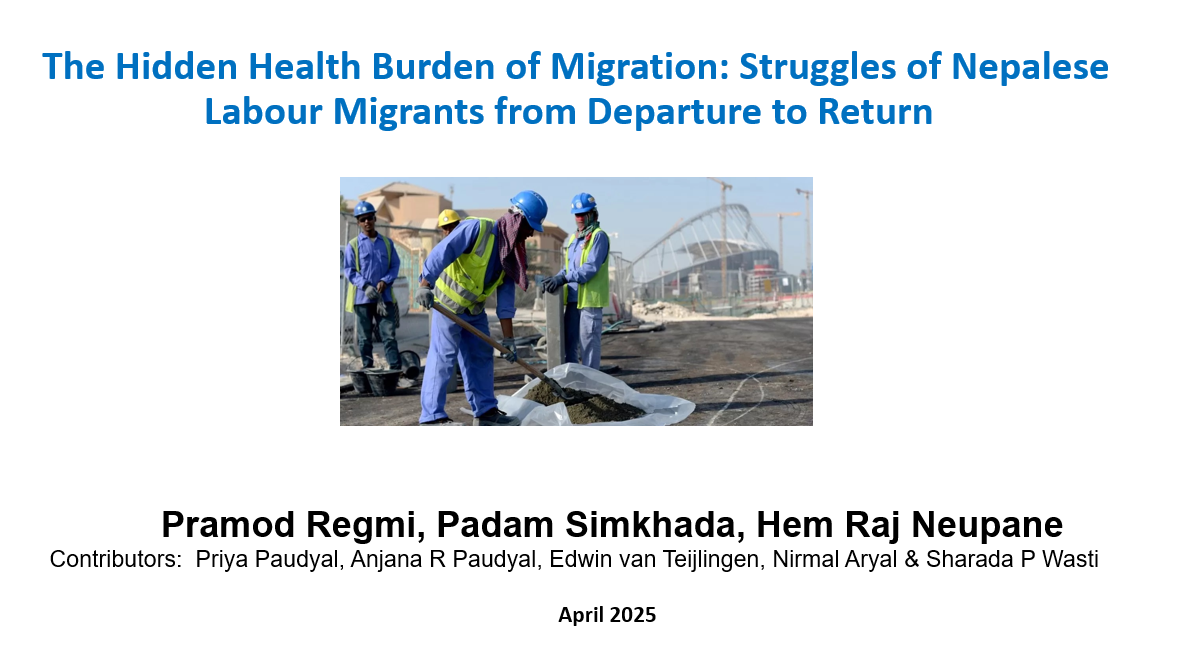 Last week, BU academic Dr. Pramod Regmi delivered a plenary talk on the struggles faced by Nepalese migrant workers from departure to return at the 22nd Britain-Nepal Academic Council (BNAC) Conference, held on 24–25 April in Liverpool. The session included two other panelists, including Prof. Padam Simkhada from the University of Huddersfield, he is also a BU Visiting Professor.
Last week, BU academic Dr. Pramod Regmi delivered a plenary talk on the struggles faced by Nepalese migrant workers from departure to return at the 22nd Britain-Nepal Academic Council (BNAC) Conference, held on 24–25 April in Liverpool. The session included two other panelists, including Prof. Padam Simkhada from the University of Huddersfield, he is also a BU Visiting Professor.
Dr. Regmi’s talk highlighted the health burden experienced by Nepali migrants throughout their migration journey. Labour migration from Nepal poses significant risks at all stages. Many aspiring migrants lack access to accurate information and support, while those from lower socioeconomic backgrounds face high documentation costs and illegal recruitment fees, affecting their mental health and placing strain on their families. Abroad, migrants often suffer exploitation, unsafe working conditions, overcrowded and unsanitary housing, limited access to healthcare, and high medical expenses. Female migrants face additional risks such as sexual violence, unintended pregnancy, exploitation, and unemployment. Upon return, especially for those who experienced abuse or trafficking, reintegration is hindered by social stigma and a lack of support services. Nepal’s weak economy further limits their ability to utilise skills gained abroad.
This presentation was informed by a long history of BU research into the health and well-being of Nepalese migrant workers, led by Dr. Regmi, Dr. Nirmal Aryal, Dr. Orlanda Harvey, Prof. Edwin van Teijlingen, and current PhD students Yagya Adhikari and Anjana Regmi Paudyal in the Faculty of Health & Social Sciences.
A round table discussion after the session focused on four questions:
- How can we better inform migrants during the pre-migration stage?
- How can we reduce the health vulnerabilities of Nepali labour migrant workers abroad?
- What are the barriers to, and opportunities for, reintegration when migrants return?
- How can we facilitate increased research collaboration in destination countries engaging local academic institutions?
Bournemouth University also contributed to two other presentations related to a project studying the impact of federalisation on Nepal’s health system. This study was funded by the UK Health Systems Research Initiative to examine the consequences of Nepal’s transition from a centralised political system to a federal structure in 2015. These two papers were presented by BU collaborators Prof. Julie Balen (Canterbury Christ Church University) and Ms. Amshu Dhakal (Manmohan Memorial Institute of Health Sciences, Kathmandu, Nepal).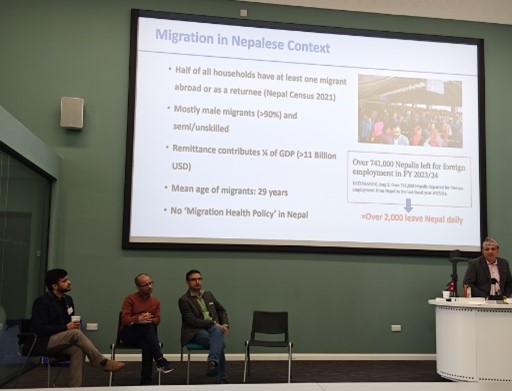
BU’s Dr. Regmi, Prof Edwin van Teijlingen and Dr Nirmal collectively have over 40 publications on Nepalese migrants’ health and well-being issues. Their recent publications on the topic include studies on modern slavery [1], kidney disease [2–4], pre-departure training of aspiring migrant workers in Nepal [5], moral panic and societal fears around migrant workers and COVID-19 [6–7], Nepalese migrant workers in Malaysia [8–9], left-behind families of migrant workers [10], migrant workers and the 2022 FIFA Men’s World Cup [11–12], Nepalese migrants in the UK [13], as well as a comprehensive literature review [14]. They are also a founder members of Health Research Network for Migrant Workers in Asia: www.hearmigrants.org
References:
- Paudyal, A. R., Harvey, O., Teijlingen, E. van, Regmi, P. R., Sharma, C. (2024). Returning Home to Nepal after Modern Slavery: Opportunities for Health Promotion. Journal of Health Promotion, 12(1), 125–132. https://doi.org/10.3126/jhp.v12i1.72713
- Aryal, N., Sedhain, A., Regmi, P.R., KC, R. K., van Teijlingen, E. (2021). Risk of kidney health among returnee Nepali migrant workers: A survey of nephrologists. Asian Journal of Medical Sciences, 12(12), 126–132. https://doi.org/10.3126/ajms.v12i12.39027
- Aryal, N., Regmi, P.R., Sedhain, A., KC, R.K., Martinez Faller, E., Rijal, A., van Teijlingen, E. (2021) Kidney health risk of migrant workers: An issue we can no longer overlook. Health Prospect 20(1):15-7
- Regmi, P., Aryal, N., Bhattarai, S., Sedhain, A., KC, R.K. and van Teijlingen, E. (2024) Exploring lifestyles, work environment and health care experience of Nepalese returnee labour migrants diagnosed with kidney-related problems, PLoS One 19(8): e0309203. https://doi.org/10.1371/journal.pone.0309203
- Regmi, P., Aryal, N., van Teijlingen, E., KC, R.K., Gautam, M. and Maharjan, S. (2024). A Qualitative Insight into Pre-Departure Orientation Training for Aspiring Nepalese Migrant Workers. Tropical Medicine and Infectious Disease, 9 (7).
- Aryal, N., Regmi, P., Adhikari Dhakal, S., Sharma, S. and van Teijlingen, E. (2024). Moral panic, fear, stigma, and discrimination against returnee migrants and Muslim populations in Nepal: analyses of COVID-19 media content. Journal of Media Studies, 38 (2), 71-98.
- Regmi, P., Dhakal Adhikari, S., Aryal, N., Wasti, S.P., van Teijlingen, E. (2022) Fear, Stigma and Othering: The Impact of COVID-19 Rumours on Returnee Migrants and Muslim Populations of Nepal, International Journal of Environmental Research & Public Health 19(15), 8986; https://doi.org/10.3390/ijerph19158986
- Chaudhary, M.N., Lim, V.C., Faller, E.M., Regmi, P., Aryal, N., Zain, S.N.M., Azman, A.S. and Sahimin, N. (2024). Assessing the basic knowledge and awareness of dengue fever prevention among migrant workers in Klang Valley, Malaysia. PLoS ONE, 19 (2).
- Chaudhary, M.N., Lim, V.C., Sahimin, N., Faller, E.M., Regmi, P., Aryal, N. and Azman, A.S. (2023). Assessing the knowledge of, attitudes towards, and practices in, food safety among migrant workers in Klang Valley, Malaysia. Travel Medicine and Infectious Disease, 54.
- Adhikari, Y., Regmi, P., Devkota, B. and van Teijlingen, E. (2023). Forgotten health and social care needs of left-behind families of Nepali migrant workers. Journal of Health Promotion, 10, 1-4.
- Regmi, P., Simkhada, P., Aryal, N., van Teijlingen, E. (2022) Excessive mortalities among migrant workers: the case of the 2022 FIFA World Cup. Europasian Journal of Medical Sciences, 4:31-32. https://doi.org/10.46405/ejms.v4i0.455
- Simkhada, P., van Teijlingen, E. and Regmi, P. (2022). Migrant Workers in Qatar: Not just an important topic during the FIFA World Cup 2022. Health Prospect: Journal of Public Health, 21 (3), 1-2.
- Simkhada, B., Sah, R.K., Mercel-Sanca, A., van Teijlingen, E., Bhurtyal, Y.M. and Regmi, P. (2021). Perceptions and Experiences of Health and Social Care Utilisation of the UK-Nepali Population. Journal of Immigrant and Minority Health, 23 (2), 298-307.
- Mahato, P., Bhusal, S., Regmi, P., van Teijlingen, E. (2024). Health and Wellbeing Among Nepali Migrants: A Scoping Review. Journal of Health Promotion, 12(1): 79–90. https://doi.org/10.3126/jhp.v12i1.72699















 Dr. Ashraf cited on ‘Modest Fashion’ in The Guardian
Dr. Ashraf cited on ‘Modest Fashion’ in The Guardian NIHR-funded research launches website
NIHR-funded research launches website Academics write for newspaper in Nepal
Academics write for newspaper in Nepal New paper published on disability in women & girls
New paper published on disability in women & girls Global Consortium for Public Health Research 2025
Global Consortium for Public Health Research 2025 MSCA Postdoctoral Fellowships 2025 Call
MSCA Postdoctoral Fellowships 2025 Call ERC Advanced Grant 2025 Webinar
ERC Advanced Grant 2025 Webinar Horizon Europe Work Programme 2025 Published
Horizon Europe Work Programme 2025 Published Horizon Europe 2025 Work Programme pre-Published
Horizon Europe 2025 Work Programme pre-Published Update on UKRO services
Update on UKRO services European research project exploring use of ‘virtual twins’ to better manage metabolic associated fatty liver disease
European research project exploring use of ‘virtual twins’ to better manage metabolic associated fatty liver disease